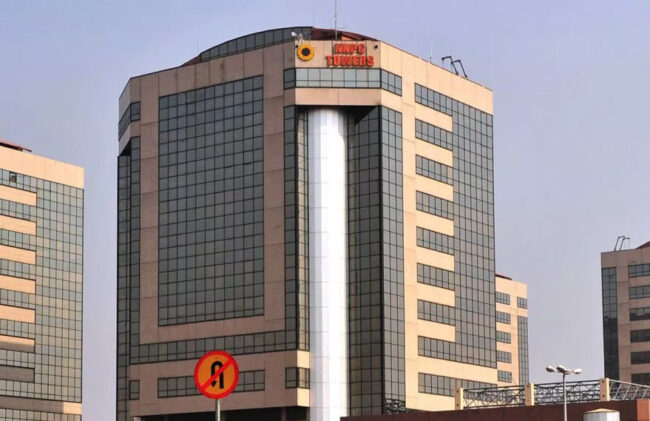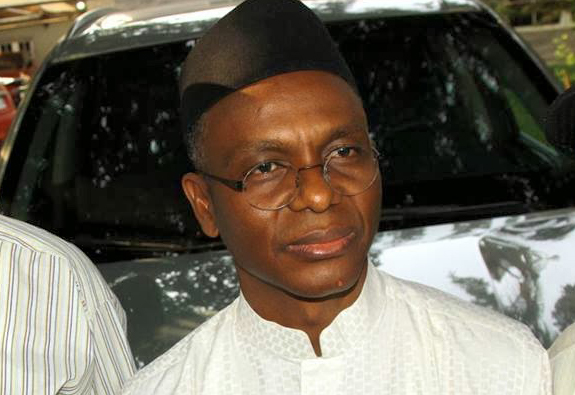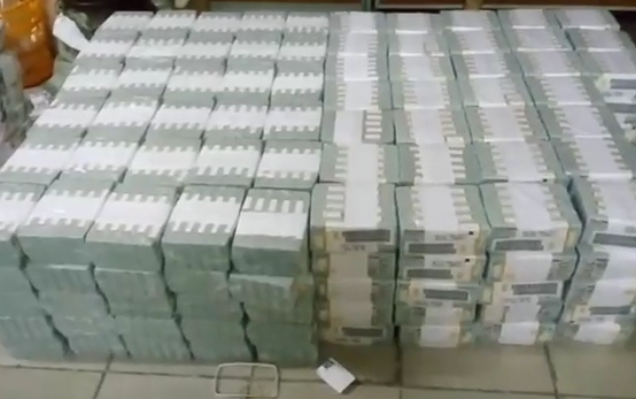The federal government in February launched the whistle-blowing policy.
According to the government, the aim of the policy is to increase exposure of financial crimes; support the fight against financial crimes and corruption; improve level of public confidence in public entities and enhance transparency and accountability in the management of public funds.
Since the launch of the policy, the Economic and Financial Crimes Commission (EFCC) has made huge discoveries of stacks of local and foreign currencies stashed away in the most unimaginable places.
Through the help of a whistleblower, the EFCC discovered $9.8m and £74, 000 in a building owned by a former group managing director of the Nigeria National Petroleum Corporation (NNPC).
Advertisement
By the same dint, it made a flurry of other cash discoveries – the latest being $43m, £27, 000 and N23m stashed away in a vulgar but famished house at Ikoyi, Lagos.
Inasmuch as a whistleblower stands to get, at most, five percent of any recovered loot he provided information on, he may be prosecuted if the information is false or malicious.
However, this is after it is confirmed that the information is provided in bad faith.
Advertisement
Here are 10 highlights of the policy:
PROVIDES INFORMATION
A whistleblower is expected to provide information on any of these themes – mismanagement or misappropriation of public funds and assets (e.g. property and vehicles); financial malpractice or fraud; collecting/soliciting bribes; corruption; diversion of revenues; fraudulent and unapproved payments; splitting of contracts and procurement fraud (kickbacks and over-invoicing etc.).
POLICY DOES NOT APPLY TO PRIVATE MATTERS
It’s not possible for two people to have differences and involve the government. As far as the policy is concerned, personal matters concerning private contracts or agreements are not included. It only seeks to expose individuals or companies holding money belonging to the government.
Advertisement
AVENUES FOR SUBMITTING INFORMATION
A whistleblower can submit information through an online portal on the ministry of finance website by email or by phone.
IDENTITY OF WHISTLEBLOWER CAN BE PROTECTED
A whistleblower may choose to remain anonymous while providing information. He is also entitled to protection. And if he suffers harassment, intimidation or victimisation for sharing the information restitution will be made.
CAN PROVIDE DOCUMENTARY EVIDENCE
A whistleblower can also provide documentary evidence such as “what occurred, the amount involved, dates of the occurrence” on the portal.
NO ACTION WITHOUT INVESTIGATION
The process involves investigation. Information provided by the whistleblower are reviewed and analysed to determine whether or not to open an investigation on the matter, and investigations are “confidential, objective and speedy”.
Advertisement
NOT ONLY EFCC IS INVOLVED
Virtually all the recoveries made through this process have been done by the EFCC, thus giving the impression that it is only the EFCC that is executing the policy.
However, the police and the Independent Corrupt Practices Commission (ICPC) are also involved.
Advertisement
REWARD FOR THE WHISTLEBLOWER
A whistleblower is also entitled to financial reward. If there is a voluntary return of stolen or concealed public funds or assets on the account of the information provided, he may be entitled to anywhere between 2.5 percent (minimum) and 5.0 percent (maximum) of the total amount recovered. Also, he must have provided the government with information it did not already have and could not otherwise obtain from any other publicly available source to the government.
BE SURE BEFORE YOU BLOW THE WHISTLE
If a whistle-blower gives false or misleading information, it will be referred to the enforcement agents for investigation and possible prosecution.
Advertisement
THE NATURE OF THE CASE DETERMINES HOW LONG THE OPERATION LASTS
A whistleblower will receive an acknowledgement immediately he submits the information. If an investigation is opened, the nature and complexity of the matters under investigation will dictate the time frame.
Advertisement
3 comments








I want to know the people that are exempted from the whistle blowing and why.
This policy seems to be focusing mainly on the recovery of physical cash. A lot of money is also lost by the country through tax evasion and making false returns to agencies such as ITF, NSITF, FIRS, State Boards of Internal Revenue, etc. A rigorous campaign and extensive public enlightenment should be conducted in this area to encourage Nigerians to blow the whistle on corrupt and fraudulent companies.
have a report on tax evasion